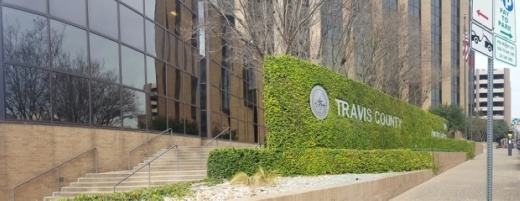The program was funded through an agreement with Texas A&M Public Policy Research Institute in partnership with Arnold Ventures. The pilot program would have studied the effects of providing arrested individuals with public defenders prior to magistration, in which a hearing is held.
Less than two weeks after kicking off the program, Sheriff Sally Hernandez said the program would not be possible at the planned pace due to shortages within her department. Other participating departments also expressed the need for more resources, though the Sheriff's Office faces the biggest challenge.
Prior to the program, after an individual was arrested they would be brought to the county’s central booking facility. Then a hearing would be held, known as magistration, where charges would be read and bond would be set.
Hernadez said the program requires extra staff from her office. This strain on resources was jeopardizing the safety of everyone involved in the hearing and could threaten the county jail’s state rating if she did not have the staff to continue operation as normal, she said.
District Attorney Jose Garza’s office and County Attorney Delia Garza’s office, along with the county’s planning and budget office, stated more funding would be needed to ensure that a prosecutor could participate in early case review and first court appearances—in other words, to act as a counterbalance to the public defender. While their offices were able to meet the need during the last two weeks, most magistrations happen on weekends and evenings, which was straining staff’s bandwidth, they said.
Most speakers on the issue, including attorneys, advocates, prosecutors and judges, urged the court not to allow the pause to last too long. Many of the speakers and the commissioners said they wanted to ensure any changes would not lose them the $500,000 in funding for the project provided by Arnold Ventures.
“I don’t need to tell all of you that time is the enemy and the death of progress, and if there is no deadline for when this program will restart, it will die,” Jose Garza said. “And if this program dies, with due respect, this will be a black mark on our county government.”
Hernandez said she fully supports the program and the need for more representation, but she said moving forward at the current goal—providing half of arrestees with public defenders—would be detrimental to her staff. Instead, she proposed hosting a few days of “staffed” shifts—times where the extra representation is available—per month.
Bradley Hargis, executive director of Capital Area Private Defender Service, said he has already seen positive outcomes through the program. He gave an example of a defendant who was incorrectly charged with a felony. After his office cleared up the mistake, the charge was reduced and the defendant was able to make the lower bond.
County staff will work with A&M to restructure the grant. The county group overseeing the grant will meet again on May 14.





